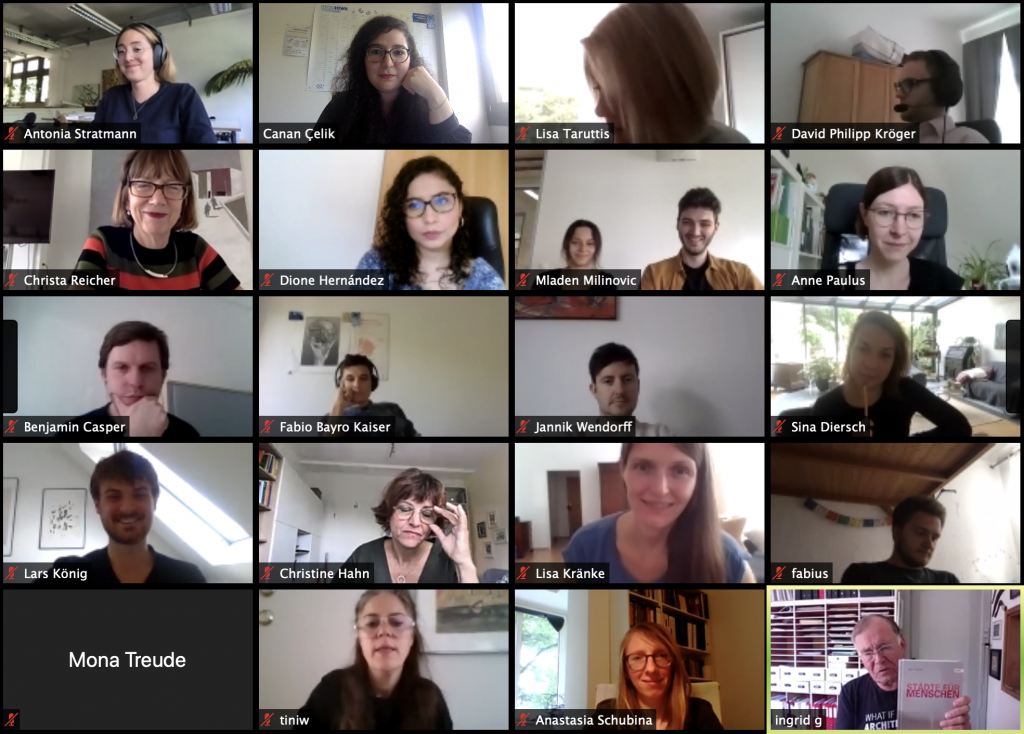Graduate School
for Sustainable Energy Systems in Neighbourhoods
Past Events
Closing Event: Sustainable Energy Systems in the Neighbourhood. Science meets Practice
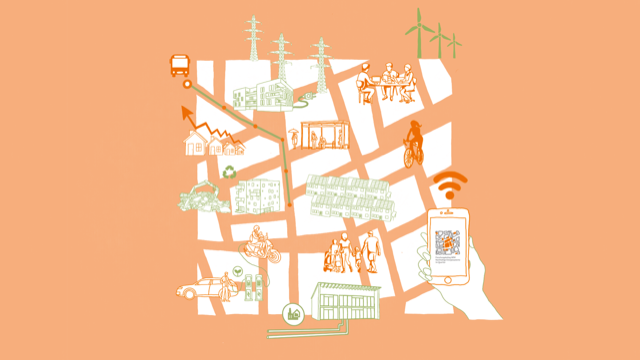
November 3, 2022, 9:30 am to 6 pm
The NRW Research College “Sustainable Energy Systems in the Neighbourhood. Models and Strategies between Local and Global Challenges” is one of twelve research collegia funded by the Ministry of Culture and Science of the State of North Rhine-Westphalia as part of the funding programme “Forschungskollegs NRW”. Complex social issues in particular require a multidisciplinary approach to research that cooperates with practice.
The aim of the NRW Research College “Sustainable Energy Systems in Neighbourhoods” (NEQ) is to develop technical, economic and social control models to increase energy efficiency and sustainability in neighbourhoods.
At the final conference on 3 November 2022 in Aachen, the research college would like to present its research results and their relevance for practice. In addition to these results, interesting practical examples of sustainable neighbourhood development will be presented and the future challenges of the conversion of energy systems, the building and housing stock and mobility will be highlighted.
All actors involved in the transformation of the building stock, the electricity and heating sector and mobility, especially at the municipal level, are cordially invited. Also cordially invited are scientists and students of all disciplines who deal with the topics of the Research School NEQ.
Participation in the conference is free of charge.
Since January 2019 until the end of 2022, 11 doctoral candidates at six different universities, colleges and institutes in NRW have been working on their doctorates in the research college. A wide range of disciplines are involved: Engineers from the fields of electrical engineering, civil engineering, architecture and urban planning, masters from the social and economic sciences and law. The common frame of reference is the neighbourhood. Four action-oriented topic clusters will be examined from different perspectives: the integrated conversion of the energy infrastructure, the activation of actors, users and owners, the establishment of new ways of acting for sustainability at the neighbourhood level, and the design of framework conditions for implementation.
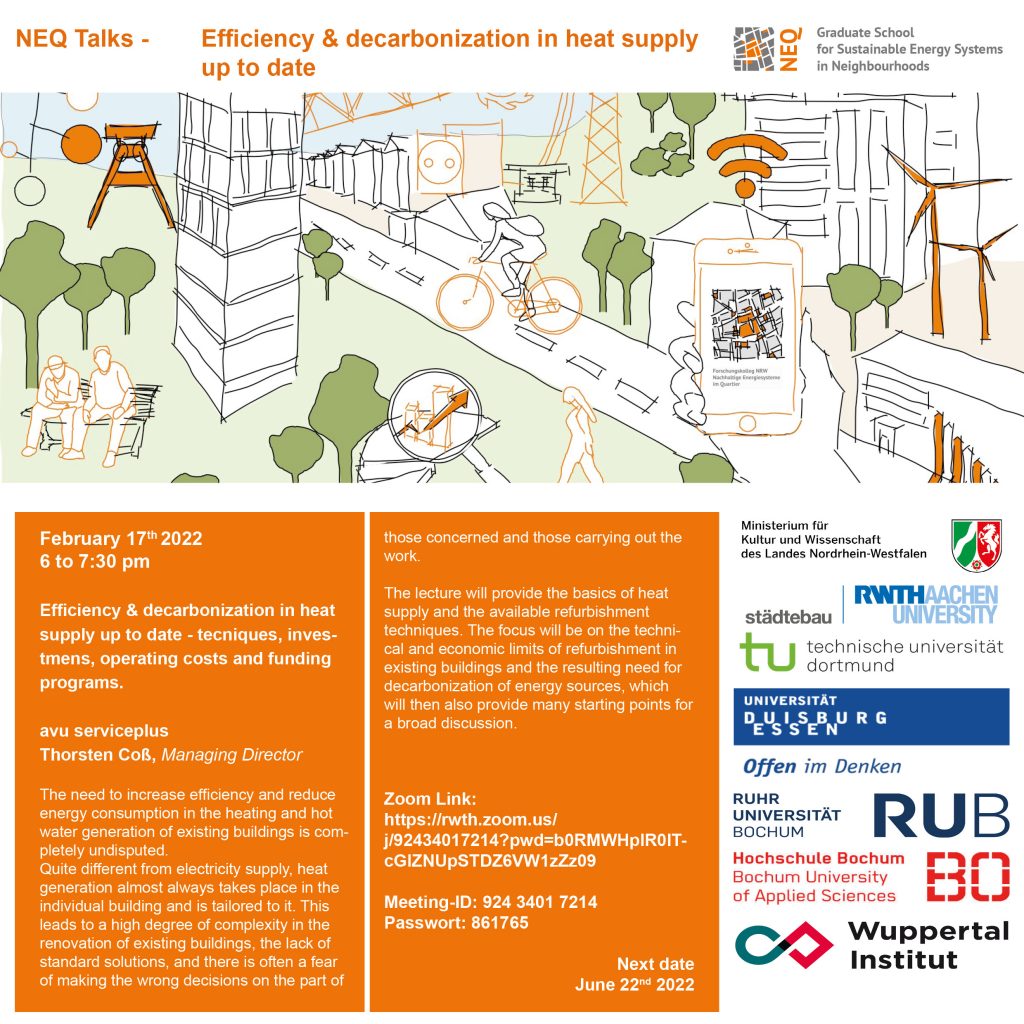
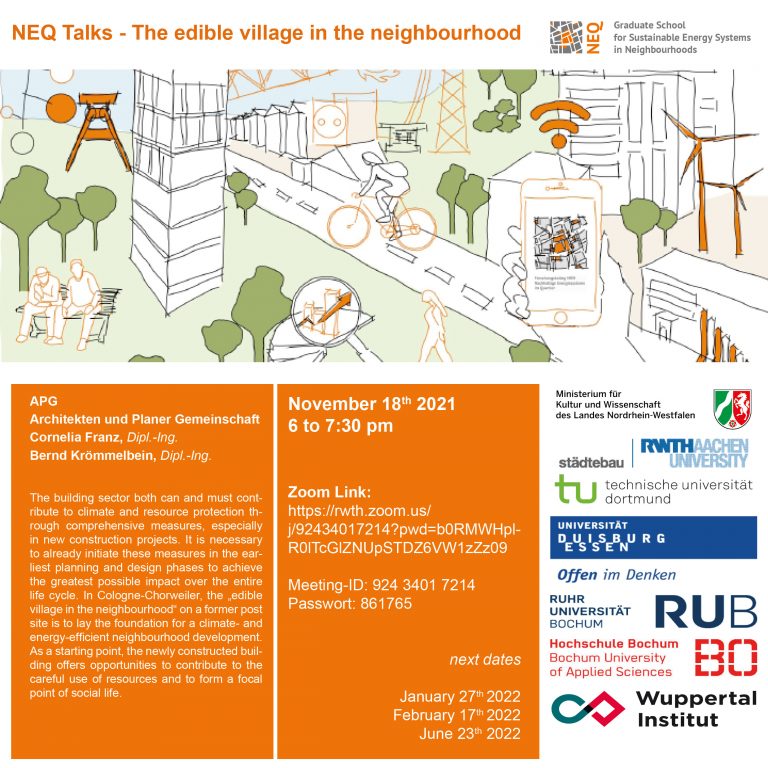
INTERCONFERENCE CORP SPECIAL
REAL CORP 2020: shaping urban change
livable city regions for the 21st century
Sina Diersch, 18. September 2020
According to this motto, the NEQ Graduate School was a guest at REAL CORP 2020 in the week of 15-18 September. The international conference on urban planning and regional development in the information society took place for the 25th time. This year in cooperation with the Institute for Urban Design of the RWTH Aachen University and the MHKBG NRW as the Aachen Conference on Urban Design- under difficult conditions. Like so many other events, REAL CORP 2020 not only had to be postponed by almost six months due to the corona pandemic, the conference also faced an additional challenge and became VIRTUAL CORP.
In parallel sessions and virtual discussion rooms, actors from science and practice exchanged views on current trends in urban development and strategies and concepts of change for cities of the future. The variety of topics ranged from coping with current challenges of climate change and climate adaptation, strategies for local and regional urban and spatial design and technology-oriented urban futures to inclusive urban planning and the demands of social change on urban and regional planning. The pandemic and its consequences for our cities were also addressed with a Special Call for Papers on the topic of ‘Emergencies, Disasters, Epidemics and the Role of Urban Planning’. Between the lecture blocks, exciting keynote sessions, sports and musical interludes enticed and relaxed the virtual conference. Four papers submitted by doctoral students of the Graduate School were presented in various sessions and published in the conference proceedings. If you are interested, you can find the proceedings here.
The doctoral students did not only provide insights into their research work in the regular sessions of the conference: In a publicly accessible lecture and discussion round, the eleven participants not only presented the interim results of their doctoral theses, but also, for the first time, answered questions from a broader public. Under the motto ‘Sustainable energy systems put to the test’, Prof. Dr. Annette Hafner (University of the Ruhr Bochum), Torsten Bölting (EBZ Business School GmbH | InWIS Forschung & Beratung GmbH), Marietta Sander (EnergyAgency.NRW), Ole Schilling (Deutsche Telekom AG) and Peter Remmen (RWTH Aachen), under the moderation of Prof. Christa Reicher and Canan Çelik (RWTH Aachen University), also offered exciting insights into the transdisciplinary approaches to the design of sustainable energy systems and neighborhood-related research and practice projects. In an extended discussion, Prof. Dr. Alexander Schmidt (University of Duisburg-Essen), Christian Thommessen (University of Duisburg-Essen), Antonia Stratmann (RWTH Aachen) and Maximilian Birk (RWTH Aachen) and the participants took a look at the challenges and complexity of the transformation of sustainable energy systems in the neighbourhood.
In this somewhat different conference year, the NEQ Graduate School looks back on four exciting, informative and inspiring days – but still hopes to be able to present the progress in research work to a ‘real’ audience next year.
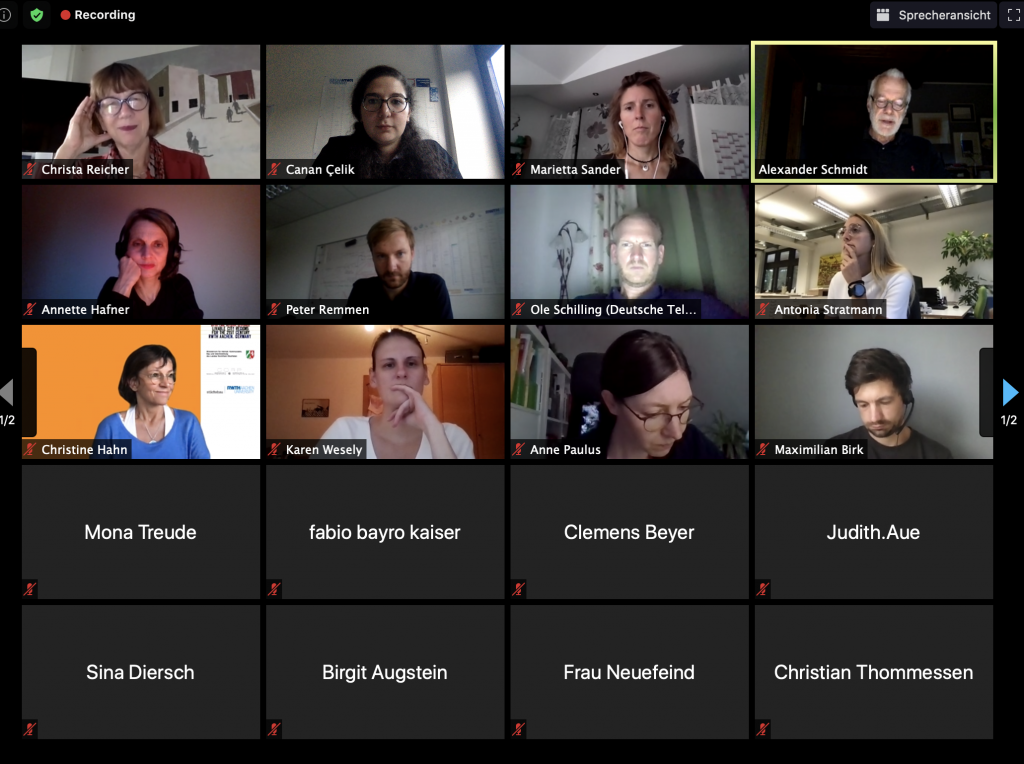
DIGITAL SUMMER OF THE ENERGY TRANSITION – EVENT: 1.07
Building energy transition: Building for 2050 today
What role do research and innovation play?
10. Juni 2020
The event discussed which innovative solutions for buildings and neighbourhoods already exist today and what an efficient, cross-sectoral energy supply can look like by 2050.
The lecture “Sustainable energy systems in the neighbourhood” by Prof. Christa Reicher presented the strategy of the research college, highlighting how the energy transition can be implemented at the neighbourhood level and how research and planning practice can be more closely linked.
JAN GEHL AT THE STÄDTEBAU+ NEQ TALK
What if architecture could change the world?
Jan Gehl
Facing special times, excursions, conversations and discussions are no longer possible through usual channels. As the graduate school “Sustainable Energy Systems in Neighbourhoods (NEQ)” unfortunately experienced as a scheduled excursion to Copenhagen could not be carried out and it was, therefore, postponed. The excursion aimed at shedding light on what innovative and sustainable neighbourhoods of tomorrow could look like and one of the highlights would have been meeting Jan Gehl. Nevertheless, to the delight of the NEQ PhD students as well as the staff of the Chair and Institute of Urban Design, the meeting with Jan Gehl was made possible through digital platforms.
Jan Gehl started an intriguing conversation by raising the question “What if architecture could change the world?” and answered it by reflecting on his work as an architect over the past 60 years. During these years, he could observe transitions from functional architecture and urban planning to more human-centred approaches in architecture and planning that focus more on the interaction between people and spaces. A change on which he looks back on positively.
Important issues were addressed that concern our young academics and have a direct impact on the development of our society and our living spaces. Different scales of the challenges must be taken into account here. Climate change is one of the biggest influencing factors in the near and long-term future, which brings resilience more and more into the focus of discussions. The requirements for quality in transformation processes are also increasing. These start at the neighbourhood level with participation tools and methods. Jan Gehl pleads not to forget that the task of a planner is to show citizen’s development scenarios and their consequences and not to transfer the entire planning task to him. This last point also makes it clear how important language and communication tools are. Many trends, such as the Smart Cities as an example, will be taken up and used for marketing purposes. It should be noted that smart is not a synonym for digitalization, but rather for “smart cities”, which use existing opportunities and instruments in a wise and targeted manner.
The fruitful conversation makes it clear that the challenges that architects and planners face are becoming more complex and that the initial question of the conversation is once again in the foreground: “What if architects change the world?
„They can change the world. But we have to want it and we have to have values. Then we can change the world with changing the mindset.”
